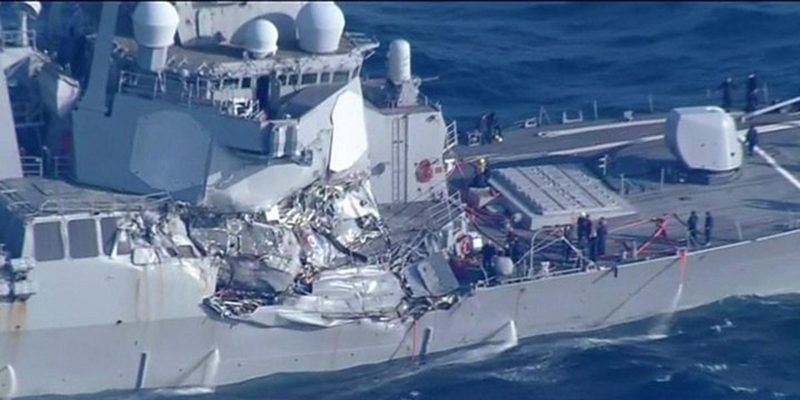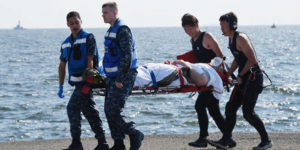
America has become so polarized and choked by political correctness, that we find ourselves unable to address topics that maybe need investigating or just a simple discussion.
We are way past the question of whether women should be in the military. They are in the military, and have always been in the military from the very foundation of America. American women in combat can be traced back to the American Revolution. SEE TIMELINE
There were approximately 203,000 women on active duty in 2011, or 14.5% of the total active-duty force of nearly 1.4 million. The number of women in the military is approximately…
74,000 in the Army,
53,000 in the Navy,
62,000 in the Air Force and
14,000 in the Marine Corps.
There are those people who believe that having women in the military is wrong because it’s a distraction that is costly and in certain situations, dangerous. Since the door to the military was finally flung open to women, how many have become pregnant within the first four years of active duty? The cost in both money and readiness is enormous.
But, women bring to the table a valuable skill set that men will never have, and that is the ability to multi-task. One of the most important skill for any unit commander is the ability to quickly assess the situation and make the correct decisions that enhances effectiveness and leads to victory with the least loss of life.
This unique skill women have to multi-task is definitely needed during the fog of war when unit commanders are many times confronted with hundreds of variables to consider before making a quick and decisive decision.
Unfortunately, this multi-tasking skill did not help the female watch-standers aboard the USS Fitzgerald prevent injuries and death when their warship collided with the Philippine-flagged container vessel ACX Crystal in the heavily used sea lanes off the coast of Japan.
While women are gifted with unique and valuable skills, they are also burdened with physiological issues that men do not have to deal with. Specifically, women must deal with monthly menstruation periods which sometimes can detrimentally affect their ability to function.
DID SYMPTOMS RELATED TO MENSTRUATION HELP
CAUSE THE COLLISION OF THE FITZGERALD
AND THE DEATH OF SEVEN SAILORS?

And, into the politically-incorrect fire we go…
Were the female officers on duty the night of the collision of the destroyer USS Fitzgerald having their period? And if so, were one or more of those female officers suffering from debilitating symptoms brought on by their menstrual cycles?
Was the human menstrual cycle a contributing factor in the lack of communication and cooperation necessary to guide an 8900 ton warship at night though the heavily traversed shipping lanes off the coast of Japan?
No one in the American government or military has the guts to even ask the question for fear of being labeled as a misogynistic sexist bigot.
SYMPTOMS OF MENSTRUATION
Most women experience mild symptoms in the few days leading up to menstruation and in the first day or two of menstruating when the flow of blood is heavier. There are over a hundred symptoms that have been attributed to menstruation, and these may change over time and from cycle to cycle.
Normally, discomforts associated with menstruation are manageable enough that women can carry on with their normal life tasks. However, for some women, symptoms are so severe, particularly the headaches and cramps, the become bedridden until the pain subsides.
Obviously, those afflicted with heavy menstrual symptoms find it difficult to carry out even the simplest tasks of life, let alone guiding a warship during the night through sea lanes clobbered with international supertankers.
Doctors will tell you the normal physical symptoms of menstruation include tender breasts, bloating, fluid retention, muscle aches, joint pain, headaches, acne, abdominal cramps, diarrhea or constipation, lower back pain, trouble sleeping, low energy and fatigue.
Painful symptoms such as headaches, cramps and backaches can range from mild to almost disabling. In the days leading up to the onset of menstruation, a woman can experience a range of emotional and physical symptoms called Premenstrual syndrome (PMS).
Feelings of irritability, food cravings, and mood swings are common symptoms associated with PMS. Now can you imagine if a female naval officer were to tell her bosses that she cannot stand a watch because of her period. How do you think that would be received in the testosterone drenched Navy?
To make things more interesting, it’s been discovered the menstrual cycles of women housed together, for example in a dormitory setting, begin to all get on the same time schedule and occur at approximately the same time each month.
Does menstrual-syncing phenomena also occur in the close confines of a ship? Has anyone done any research to determine if this phenomenon is detrimental to the good order and discipline of a naval vessel? Of course not. Members of Congress would be calling for an investigation if anyone even hinted at such an idea.
Again, were the menstrual cycles of the women serving on-board the USS Fitzgerald a factor in the collision that killed seven sailors? Some of the people contacting us believe it was a factor. We will never know because the Navy just doesn’t have the courage to ask the question, let alone investigate the matter.
Naval officers asking such a question would be politically drawn and quartered. In other words, to merely ask the question is to place your entire naval career in jeopardy.
THE NAVY’S SCORNFUL REPORT
Rear Admiral Brian Fort submitted a scathing report about a month after the June 17, 2017 collision. The Navy Times said the report was kept secret from the public in part because it was designed to prep the Navy for potential lawsuits in the aftermath of the accident.
Remember the Feres Doctrine protects the government and military from law suits even when there is clear and convincing evidence of gross or wanton negligence. It’s therefore, highly doubtful that any law suit brought against the government would prevail.
RADM Fort’s investigation revealed how personal distrust led the officer of the deck, LTJG Sarah Coppock, to avoid communicating with the destroyer’s combat information center (CIC). The most important thing in any combat unit is “command and control” which cannot happen without effective communication.
They say that when RADM Fort examined the CIC, he immediately noticed the smell of urine. He saw kettlebells on the deck and bottles filled with urine. A kettlebell is a cast iron or cast steel ball with a handle attached to the top (resembling a cannonball with a handle).
Kettlebells are used to perform many types of exercises, including ballistic exercises that combine cardiovascular, strength and flexibility training. It appears the combat information center aboard the Fitzgerald was also a weight room so people could workout during their watch.
The bottles of urine are a mystery. Usually people pee in a bottle because they have a drug problem. in other cases, people are just too lazy to walk to the washroom. Why they had bottles filled with urine in the combat information center of a warship is not clear. All we know for sure is that it’s not your father’s Navy anymore.
RADM Fort discovered the Voyage Management System (VMS) generated more “trouble calls” than any other key piece of electronic navigational equipment. The VMS is designed to help watch-standers navigate without paper charts, like they used to do it back in the day. It was also discovered the VMS station in the skipper’s quarters was being cannibalized for parts to help keep the rickety system working in CIC.

RADM Fort concluded the crew was plagued by low morale; overseen by a dysfunctional chiefs mess, and combined with a high tempo of operations that left exhausted sailors with little time to train or complete critical certifications.
RADM Fort also concluded the crew was led by officers who appeared indifferent to potentially life-saving lessons that should’ve been learned from other near-misses at sea, including a similar incident near Sasebo, Japan, that occurred only five weeks before the JUNE 2017, ACX Crystal collision.
RADM Fort’s investigation became even more important after the USS McCain collided with the Liberian-flagged tanker (Alnic MC) on August 21, 2017, killing ten more sailors.
There were many contributing factors for the collision by the USS Fitzgerald cited by RADM Fort’s report, but no mention about whether the abilities of the female watch-standers were adversely affected because of physical and/or mental-focusing issues brought on by a monthly menstrual cycle. No one in the upper echelons of the Navy has the guts to even address the issue, but they should.
Three weeks after the ACX Crystal disaster, Fort’s investigators administered a rules-of-the-road pop quiz on Fitz’s officers. The 22 who took the test averaged a score of 59 percent. “Only three officers achieved a score over 80%,” and seven officers flunked it but good scoring below 50 percent. The executive officer of the USS Fitzgerald (CMDR Babbitt), LTJG Coppock and two other officers refused to take the test.
WHAT OUR SOURCES ARE TELLING US
Our sources tell us the female officers aboard the Fitzgerald were not communicating with each other at all. And, when the job ultimately demanded communication, it was not at all in a professional manner. Why were these naval officers acting like three-year-olds is not clear?
What appeared to be a hissy-fit of some kind, may have been the outward manifestation of symptoms associated with the human menstural cycle. What ever the cause for the lack of communication and coordination, it resulted in a devastating collision that claimed the lives of seven American sailors.
Sailors say the female watch-standers aboard the USS Fitzgerald were extremely irritable and would “bite your head off” if you asked even the simplest question.
There is obviously no proof the female officers standing watch that fateful night were suffering physical symptoms associated with their menstrual cycles. There is no proof that any of them were having their period.
It’s possible the irascible atmosphere in the CIC nerve center of the ship was being caused by other factors. That’s the piece of the puzzle that’s missing.
What’s the real reason the morale, communication, and cooperation by ship’s personnel was in the toilet? Was it caused by poor leadership from the captain and executive officer? Or, was it a simple case of being overworked and underpaid? Or, was it due to an personality conflict between watch-standers? Or, was it all of those things combined with females that had control of the ship all having their menstrual cycles hit at the same time?
If the military is going to fully incorporate women into virtually every job in the armed forces, we need to take into account all factors that can affect the war-fighter’s ability to function at their peak ability. It begs the question; is a woman who is physically suffering from debilitating ailments associated with her monthly menstrual cycle eligible to stand a watch aboard an American man-of-war?
DANGER ON THE HORIZON
America is not in a good place right now. The Chinese are increasing in military strength on a daily basis and we can’t even keep our warships from bouncing off civilian tankers during the night.
We still have a creep running North Korea who probably can launch a nuclear missile at the United States. That’s information the government won’t tell you because it could shake our allies like Japan to its core.
And with all this going on, our politically-correct military is attempting to equip all military installations (and ships) with a third washroom so people who don’t know what sex they are will have a…. wait for it…. a sanctuary to relieve themselves. You cannot make this stuff up.
In the 1992 movie “A Few Good Men,” Col. Nathan Jessup had it right, we really can’t handle the truth sometimes.
Lt. Kaffee: Colonel Jessup, did you order the Code Red?!
Judge: You don’t have to answer that question!
Col. Jessup: I’ll answer the question. You want answers?
Lt. Kaffee: I think I’m entitled!
Col. Jessup: You want answers?!
Lt. Kaffee: I want the truth!

Col. Jessup: You can’t handle the truth!
Son, we live in a world that has walls, and those walls have to be guarded by men with guns. Who’s gonna do it? You? You, Lieutenant Weinberg? I have a greater responsibility than you can possibly fathom.
You weep for Santiago and you curse the Marines. You have that luxury. You have the luxury of not knowing what I know, that Santiago’s death, while tragic, probably saved lives. And my existence, while grotesque and incomprehensible to you, saves lives!
You don’t want the truth, because deep down in places you don’t talk about at parties, you want me on that wall. You need me on that wall. We use words like “honor”, “code”, “loyalty”. We use these words as the backbone of a life spent defending something. You use them as a punchline.
I have neither the time nor the inclination to explain myself to a man who rises and sleeps under the blanket of the very freedom that I provide, and then questions the manner in which I provide it!
I would rather you just said “thank you”, and went on your way. Otherwise, I suggest you pick up a weapon, and stand a post. Either way, I don’t give a damn what you think you are entitled to!
Lt. Kaffee: Did you order the Code Red?
Col. Jessup: I did the job that—-
Lt. Kaffee: Did you order the Code Red?!
Col. Jessup: YOU’RE GODDAMN RIGHT I DID!



